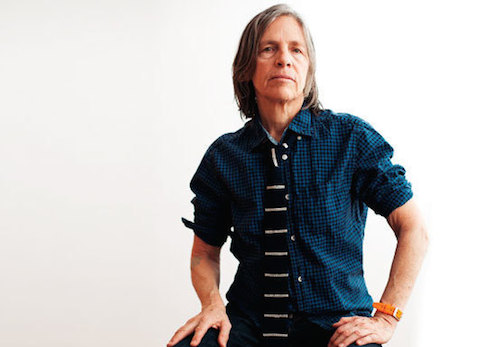Q THE WHITE REVIEW — What would have been different had we done this interview a year ago? Has your increased visibility changed the way you perceive what you are doing?
A EILEEN MYLES — I think the challenge is always to talk from where you actually are. It’s always like being in a different culture. My joke has always been that if being an alcoholic didn’t destroy my writing, if being a lesbian didn’t destroy my writing, if being an academic didn’t destroy my writing, why would…
Q THE WHITE REVIEW — Being canonised?
A EILEEN MYLES — Yes. In a way it’s none of my business and it’s a matter of figuring out how to make what I’m doing be even more intimate than it has been. I started writing in the seventies and it was very quiet and nobody gave a damn that I was writing or that I was me, and there was so much freedom in that. Lately I got an award and rather than making a speech I just read my newest poem. That felt right. That’s what I mean by intimate. So there’s just a way now in which maybe I can relax, and yet you don’t want to relax too much. I want to be precise in this freedom.
Q THE WHITE REVIEW — John Ashbery wrote that some artists, and possibly the best ones, pass from ‘unacceptability to acceptance without an intervening period of appreciation’. Do you feel something similar can be said about the reception of your work? That in a sense, you did time?
A EILEEN MYLES — Yes, and I mean, not until recently has the press actually gotten really smart. In terms of say, getting reviewed, what often is getting reviewed is the fact that I’ve become famous, and I was still not having the work be written about. THE NEW YORK TIMES had some guy who was a cultural critic writing about me, and he talked mostly about my work in my twenties, and that I was, like, badass and punk, and I was just like, ‘How is this relevant to the work I’m doing now?’ But there was an amazing piece in THE NEW YORK REVIEW OF BOOKS that was beautiful and smart. Getting my work actually written about is like being loved or something. I feel like that’s how I want to be seen. Meaning read.
Q THE WHITE REVIEW — How is it that you would like to be seen now? What is different about your work now, and how do you feel about your older work?
A EILEEN MYLES — I’m saying I’d enjoy being viewed and written about as a writer rather than as a cultural phenomenon. I think it’s more sexism – to see my work being read as this raw sexual thing – which only makes editors want more of that, rather than my next book. I think being a female or a queer writer is uniquely strange because you still are all those things before the word ‘writer’, when in all the years you were writing that wasn’t necessarily what was in the room with you. I was in my body writing. So is a man. So is anyone. So please tell me about the effect of the work, what’s in it, and I don’t mean content. What’s the experience of reading it? That’s how I write about books.
(…)


